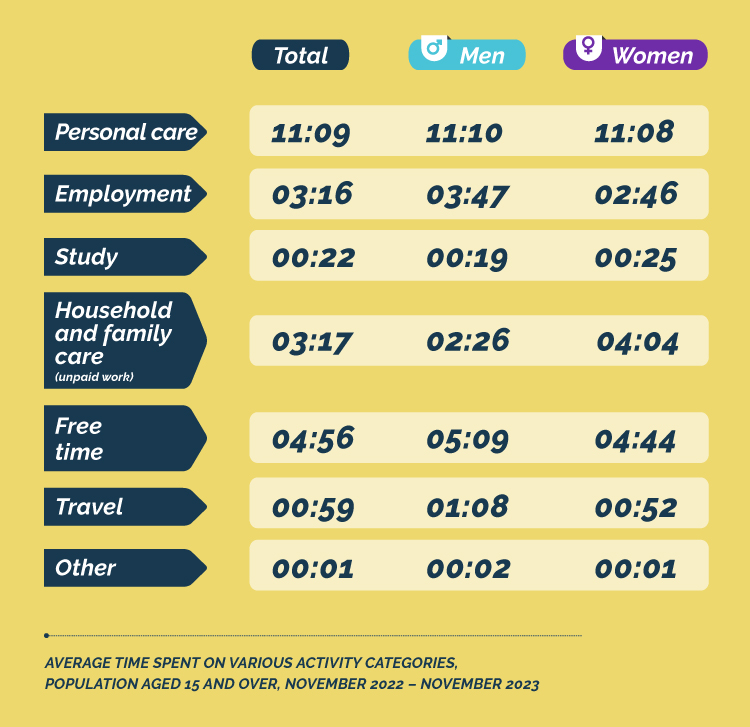- Published: 17.01.2025.
How to improve your January mood?
Time Use Survey results published
As the December comes to an end, with all its hustle and bustle, filled with obligations, celebrations, and gatherings, and generally marked by a hectic pace of life, in January, days start to take on a slower pace again, which can trigger negative mood for many. The so-called Blue Monday, often considered the most depressing day of the year, falls in January, specifically, on the third Monday on the month. When we factor in the fact that January generally seems endlessly long, add the Monday, which in itself evokes negative emotions in many people and not just in this post-holiday month, and multiply it all by the cold weather, the calculation is evident—maintaining optimism may turn out to be a real challenge.Still, a bad mood should be fought, and below we present a few suggestions on how to overcome the January blues.
1. Take care of yourself
Regular personal care, which involves paying attention to one's own needs, not just the needs of others, is one of the most important steps in maintaining mental health. According to the results of the Time Use Survey, which was conducted from November 2022 to November 2023, Croatian residents, on average, take care of themselves for only a few minutes over 11 hours a day, which includes sleeping, and women and men do this to an equal extent. If one compares personal care on weekdays with personal care on weekends, the numbers increase on weekends, as expected, to an average of 12 hours and 12 minutes per day. When it comes to age groups, the elderly group (65+ years of age) dedicates most time to themselves, while persons in the age group 30 - 64, given their work and family obligations, can certainly set aside less time exclusively for themselves.
2. Dedicate yourself to learning and acquiring new skills
In conversations with friends, colleagues or family, the topic of workout and physical health has surely come up countless times. Everyone is full of advice on what to eat and how many times a week to exercise, but how many of them have suggested fitness for the brain? Lifelong learning and mastering new skills are also important for your health so it is important to include them as much as possible because they help us keep our minds sharp, and the feeling of acquiring new knowledge contributes to raising our level of self-confidence. Unfortunately, study is the activity to which, according to the recently published results of the Time Use Survey, conducted on a sample of 4 680 private households, we devote the least time, on average only 22 minutes a day.
3. Spend your free time well
After the holiday hustle and bustle, you may actually just need peace and solitude, but if you are a hopeless extrovert, don't give up socializing with friends and family even during January. If your social batteries are still drained, use your free time to do something you sometimes complain about not having enough time for, such as reading or watching a good series or movie. How much free time do we actually have every day? We sought the answer in the results of the previously mentioned Survey, conducted among people aged 15 and over, according to which Croatian residents have, on average, just under five hours of free time available per day, while looking at gender, men have, on average, almost half an hour more free time than women.
4. Take on household chores that you have been putting off for a long time
Although household chores are rarely seen as a form of entertainment and relaxation, you don't necessarily need to approach them with a negative attitude. Keep your hands busy, and with that, your mind as well. Use these cold days to tackle a household chore that you may have been postponing for months. Judging by the results of the Time Use Survey, the aim of which is to collect statistical data on how people spend their time during weekdays and weekends, women perform housework to a much greater extent, more precisely, they devote almost twice as much time to it as men. So, get to work, and when spring and nicer days come, you'll be happy to spend them outdoors, instead of, for example, cleaning out your closet.
More detailed data from the Time Use Survey can be found at the following link: Time Use Survey.

